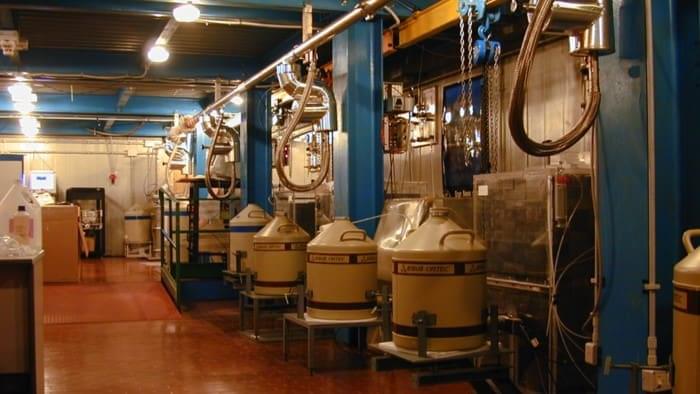Growing metabolism-based resistance is the greatest problem no-tillers will face with weed control, but effective use of herbicides, using multiple modes of action, and controlling the weed seed bank at harvest can all help.


Nearly 10 years of research is giving U.S. nuclear companies the data and confidence they need to operate up to 80 years.
The amphibious assault ship USS Essex can print parts on demand, reducing the need for inventory.
One of the U.S. Navy’s largest warships is now rocking a 3D printer, allowing the crew to quickly crank out replacement parts for drones. The service hopes that additive manufacturing technology will allow it to save time and money, reducing the need to stock spare parts on hand, especially when a ship is at sea. It believes that 3D printers could someday become standard issue on every warship.

After a US Supreme Court draft decision on Roe v. Wade was leaked in May, Dr. Joshua Trebach noticed a disturbing turn in the online conversation around abortion.
“I started seeing things on social media, things like TikTok, Twitter, Facebook, Instagram, people saying ‘oh, if Roe v. Wade does get overturned, here are some secret, sneaky ways that you can drink some tea and have an abortion,’” Trebach said.
Now that Roe v. Wade has been overturned and some states are putting strict limits on abortions, there’s widespread confusion about whether the procedures are available and to whom. Physicians and poison control officials say they’re worried that people seeking abortions will turn to ineffective and dangerous methods shared online, potentially delaying or preventing safe, proven abortion care.



A Google executive said the company’s data shows TikTok and Instagram are a threat to Google Search with Gen Z, and Google is working to keep up.
Researchers at Cornell University have come up with a novel biomaterial that can be used to create artificial skin capable of mimicking the behavior of natural human tissues. Thanks to its uniqu.

Researchers at Cornell University have come up with a novel biomaterial that can be used to create artificial skin capable of mimicking the behavior of natural human tissues.
Thanks to its unique composition, made up of collagen mixed with a ‘zwitterionic’ hydrogel, the team’s biohybrid composite is said to be soft and biocompatible, but flexible enough to withstand continued distortion. While the scientists’ R&D project remains ongoing, they say their bio-ink could one day be used as a basis for 3D printing scaffolds from patients’ cells, which effectively heal wounds in-situ.
“Ultimately, we want to create something for regenerative medicine purposes, such as a piece of scaffold that can withstand some initial loads until the tissue fully regenerates,” said Nikolaos Bouklas, one of the study’s co-lead authors. “With this material, you could 3D print a porous scaffold with cells that could eventually create the actual tissue around the scaffold.”

Because the heart, unlike other organs, cannot heal itself after injury, heart disease—the top cause of mortality in the U.S.—is particularly lethal. For this reason, tissue engineering will be crucial for the development of cardiac medicine, ultimately leading to the mass production of a whole human heart for transplant.
Researchers need to duplicate the distinctive structures that make up the heart in order to construct a human heart from the ground up. This involves re-creating helical geometries, which cause the heart to beat in a twisting pattern. It has long been hypothesized that this twisting action is essential for pumping blood at high rates, but establishing this has proven problematic, in part because designing hearts with various geometries and alignments has proven difficult.

Relatively new COVID-19 subvariant BA.5 takes some of Omicron’s worst traits—transmissibility and immune evasion—to a new level.
But it also combines them with a penchant for affecting the lungs reminiscent of the Delta variant that hit the U.S last summer and fall, according to two recent studies.
In the case of Delta, COVID tended to accumulate in and affect the lungs, potentially resulting in more severe disease. Until recently, a silver lining of Omicron has been its tendency to instead accumulate in the upper respiratory tract, causing symptoms more similar to a cold or the flu.